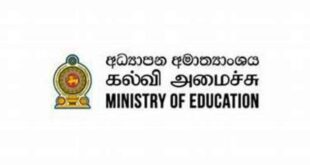The 20th anniversary of the fall of the Berlin Wall Monday passed very quietly in the Arab world, because the meaning of the wall’s fall – the transition from total state control to human freedom – also bypassed the Arab world. Not the Islamic world, or the Middle East, but the Arab world. For many reasons, the Arab world collectively is the sole exception to the global wave of liberalization and democratization that touched every other region of the planet – except ours. It is difficult to predict how and when our region will change, liberalize, and democratize. The spark that sets off a chain reaction for freedom could happen in one country, and then spread to others – like the Solidarity movement in Poland ultimately echoed throughout the Soviet bloc and resulted in its total transformation.
The instruments of state control vary throughout the Arab world, and the intensity of autocracy also differs by country, but the net result everywhere – with very few exceptions – is the same: the average Arab citizen does not feel that he or she has the opportunity to express himself or herself honestly or fully, or is able to influence the policies of their government. Most Arabs feel strong and confident about their culture, religion and identity, but powerless and vulnerable as citizens of their state.
Modern history in other parts of the world – like South Korea, Taiwan, and Malaysia – indicates that people will accept to live in autocratic political systems for decades on end if their socio-economic standards of living continue to improve. After some years, though, they will demand the right to participate in the decisions their government makes. The Arab world passed through a long period of sustained national development and state-building from the 1930s to the 1980s, when calls for democracy were rare. In the past 20 years, though, economic growth has tended to skew toward benefiting a small minority of wealthy Arabs, while most nationals in this region feel the improvements in their social and economic wellbeing have stalled, and in some cases reversed.
Citizens who simultaneously feel economically stressed and politically stunted find themselves transformed from productive assets for national developments to disruptive elements in a sea of discontent. Islamist and tribal movements in many parts of the Arab world in the past two decades reflected many citizens’ determination to find a way to organize, mobilize and express themselves in political systems that structurally deprived them of real voice. Yet Islamist and tribal movements that enjoy power have not provided citizens with answers they seek, especially in the sphere of economic opportunity.
The instruments of state autocracy – security services, economic power, information and educational channels, political offices, the judiciary – remain firmly in the hands of small groups of men in every Arab country. Representational institutions such as parliaments and consultative councils are subservient to and manipulated by executive authority, and thus do not play their accountability role. The result is that the Arab world lacks governance systems based on the rights of citizens, checks and balances among the different branches of government, and civilian oversight of security services. Instead, governance and public service have become yet another arena where power, privilege and access to state services are negotiated on a daily basis among competing actors. The majority of Arab societies are relatively stable and daily life goes on normally for most people – with war-torn exceptions like Somalia, Palestine, Iraq and others – because most Arabs have adapted well to competing for their share of state services in the absence of democratic systems. Our countries appear relatively stable, but beneath the surface calm is a sea of discontent and concern.
The greatest victims of the Arab world’s lack of democratic freedoms is the current generation of Arab youth. They enjoy all the other dimensions of modernity – education, travel, electronic interconnectedness, urbanism, exposure to other cultures – that should give them a productive, vibrant and satisfying life, yet they are politically stunted and economically constrained.
The existing political systems seem unable to generate the quality and volume of new jobs needed to absorb tens of millions of fresh graduates. The discontent exhibited by Arab youth today is similar to that which drove the liberation movements of the Soviet bloc a generation ago: educated men and women whose basic needs were met but whose potential for political expression, cultural creativity, and economic development were constrained by a top-heavy, militarized and closed political system that dehumanized them, and was beyond their reach.
I would not be surprised to see young people lead the movement for change in the Arab world, when the moment comes for that movement to materialize and wash away the legacy of authoritarian or autocratic power structures that have reached the end of their useful days in our region.
Post Disclaimer | Support Us
Support Us
The sailanmuslim.com web site entirely supported by individual donors and well wishers. If you regularly visit this site and wish to show your appreciation, or if you wish to see further development of sailanmuslim.com, please donate us
IMPORTANT : All content hosted on sailanmuslim.com is solely for non-commercial purposes and with the permission of original copyright holders. Any other use of the hosted content, such as for financial gain, requires express approval from the copyright owners.
 Sri lanka Muslims Web Portal Sri Lanka Muslims News Center
Sri lanka Muslims Web Portal Sri Lanka Muslims News Center
 Donate
Donate


A fine brief article on a very important subject – why did democracy fail to catch on in the Arab world unike in every other region of the world? An exception is Lebanon which has a strong Christian component. That might suggest that the obstacle is Islam. But democracy has been established at least to some extent in Islamic countries outside the Arab world. I don’t know the answer